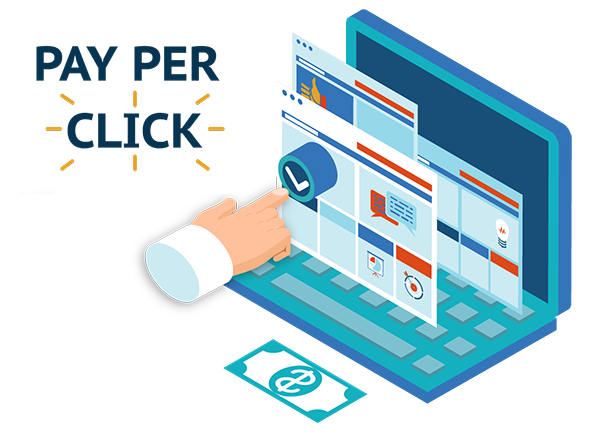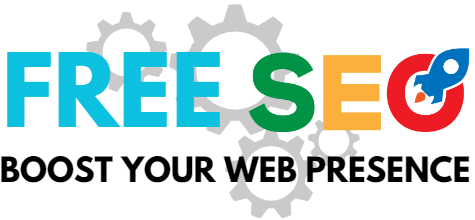When it comes to digital marketing, two primary strategies stand out: Search Engine Optimization (SEO) and Pay-Per-Click (PPC) advertising. Each approach has its own set of advantages and disadvantages, and choosing between them is a crucial decision for any business looking to enhance its online presence. In this article, we will delve into the intricacies of SEO and PPC, comparing their benefits and drawbacks to help you determine which strategy is right for your business.

Understanding SEO
What is SEO?
Search Engine Optimization (SEO) is a method used to enhance a website’s visibility on search engine results pages (SERPs) organically. By optimizing various elements of your website, such as keywords, content, and site structure, SEO aims to improve your site’s ranking for relevant search queries.
Benefits of SEO
1. Cost-Effectiveness
One of the most significant advantages of SEO is its cost-effectiveness. Unlike PPC, where you pay for each click, SEO involves organic ranking, meaning you don’t incur costs per visitor. This makes it a sustainable long-term strategy, especially for businesses with limited marketing budgets.
2. Long-Term Results
SEO provides long-lasting results. Once your site starts ranking well, it can maintain its position for an extended period with minimal ongoing effort. This longevity means that the initial investment in SEO can pay off for years.
3. Credibility and Trust
Organic search results are often perceived as more credible by users compared to paid ads. High-ranking SEO results can enhance your brand’s credibility and trustworthiness, leading to higher click-through rates (CTR) and better engagement.
Drawbacks of SEO
1. Time-Consuming
SEO is not a quick fix. It takes time to see significant results, often several months to a year. This delay can be a drawback for businesses needing immediate traffic and conversions.
2. Algorithm Changes
Search engines frequently update their algorithms, which can affect your rankings. Staying up-to-date with these changes and adjusting your strategy accordingly requires continuous effort and expertise.
3. Competitive Nature
Highly competitive industries can make it challenging to rank well for popular keywords. Achieving and maintaining top positions often requires substantial resources and constant optimization.
Understanding PPC
What is PPC?
Pay-per-click (PPC) advertising is a model where businesses pay a fee each time their ad is clicked. These ads typically appear at the top of search engine results pages or on various online platforms. Google Ads is one of the most popular PPC platforms.
Benefits of PPC
1. Immediate Results
PPC campaigns can generate traffic almost instantly. Once your ad is live, it can start driving visitors to your website immediately, making it an excellent choice for businesses seeking quick results.
2. Targeted Advertising
PPC allows for precise targeting. You can tailor your ads to reach specific demographics, locations, devices, and even times of day. This level of targeting ensures that your ads are shown to the most relevant audience.
3. Measurable ROI
PPC campaigns provide detailed analytics, allowing you to measure the return on investment (ROI) accurately. You can track conversions, click-through rates, and other key metrics, enabling you to refine your strategy for maximum effectiveness.
Drawbacks of PPC
1. Cost
The most significant drawback of PPC is its cost. Depending on your industry and the competitiveness of your keywords, PPC can become expensive, especially if not managed effectively. High competition can drive up the cost per click (CPC), reducing overall ROI.
2. Temporary Results
PPC ads only generate traffic as long as you continue to pay for them. Once you stop your campaign, the traffic stops as well. This makes PPC a less sustainable long-term strategy compared to SEO.
3. Ad Blindness
Some users develop “ad blindness” and ignore paid advertisements, focusing only on organic search results. This behavior can limit the effectiveness of your PPC campaigns.
Comparing SEO and PPC
Cost Considerations
- SEO: Initially, SEO can be more cost-effective as it does not involve paying for each visitor. However, it requires ongoing investment in content creation, optimization, and link building.
- PPC: PPC involves a continuous cost per click, which can add up quickly, especially in competitive markets. Budget management is crucial to ensure a positive ROI.
Speed of Results
- SEO: SEO is a slow-burn strategy, requiring time to build and establish rankings. It’s ideal for long-term growth but not for immediate traffic.
- PPC: PPC delivers instant results, making it suitable for time-sensitive campaigns and quick traffic generation.
Sustainability
- SEO: Once established, SEO provides sustained traffic with lower ongoing costs. However, it requires regular updates and maintenance to stay competitive.
- PPC: PPC traffic stops when the budget runs out. It’s effective for short-term goals but not a standalone long-term strategy.
Credibility and Trust
- SEO: Organic search results generally enjoy higher trust and credibility from users. Achieving a top spot organically can enhance your brand’s reputation.
- PPC: Paid ads may be viewed with scepticism by some users, potentially affecting click-through rates and trust levels.
When to Use SEO
- Long-Term Goals: If your goal is sustainable, long-term growth, SEO is the better choice. It builds a foundation that can yield results for years.
- Budget Constraints: For businesses with limited budgets, SEO offers a cost-effective way to generate organic traffic without the ongoing expense of PPC.
- Brand Credibility: If establishing and maintaining a credible, trustworthy brand presence is essential, SEO can help achieve that through high organic rankings.
When to Use PPC
- Immediate Results Needed: If you need quick traffic and immediate results, PPC is the way to go. It’s ideal for new product launches, seasonal promotions, or time-sensitive offers.
- Highly Targeted Campaigns: PPC’s advanced targeting options make it perfect for reaching specific audiences, whether by location, device, or user behavior.
- Flexible Budgets: If you have a flexible budget and can afford to pay for immediate visibility, PPC can deliver fast, measurable results.
Integrating SEO and PPC
For many businesses, the best approach is a combination of both SEO and PPC. By integrating these strategies, you can leverage the strengths of each to maximize your online presence.
Synergistic Benefits
- Keyword Data Sharing: Use PPC campaigns to test and identify high-performing keywords, then integrate these into your SEO strategy for long-term gains.
- Enhanced Visibility: Occupy both paid and organic search results to dominate the SERPs and increase your brand’s visibility and credibility.
- Retargeting Opportunities: Use PPC to retarget visitors who initially found you through organic search but did not convert, keeping your brand top-of-mind.
Strategic Planning
- Budget Allocation: Allocate budget strategically between SEO and PPC based on your business goals, competition, and market conditions. Adjust as needed to maximize ROI.
- Continuous Optimization: Regularly review and optimize both your SEO and PPC strategies to adapt to changing algorithms, market trends, and user behavior.
Conclusion
Choosing between SEO and PPC depends on your business goals, budget, and timeframe. SEO offers long-term, cost-effective growth and builds credibility, but requires patience and continuous effort. PPC provides immediate, targeted traffic with measurable results, but can be costly and unsustainable in the long run. For many businesses, a balanced approach that leverages both strategies will yield the best results, ensuring immediate visibility while building a strong, sustainable online presence.
FAQs
1. Can I use both SEO and PPC simultaneously?
Yes, using both strategies simultaneously can provide the best results by combining the long-term benefits of SEO with the immediate impact of PPC.
2. How long does it take to see results from SEO?
SEO results can take several months to a year to become evident, depending on the competitiveness of your industry and the effectiveness of your strategy.
3. Is PPC more effective for certain industries?
PPC can be particularly effective for industries with high competition or those needing immediate visibility, such as e-commerce, real estate, and seasonal businesses.
4. How do I determine my PPC budget?
Your PPC budget should be based on your business goals, the competitiveness of your keywords, and your overall marketing budget. Regularly monitor and adjust your spending to ensure optimal ROI.
5. What are some common SEO mistakes to avoid?
Common SEO mistakes include keyword stuffing, neglecting mobile optimization, ignoring technical SEO aspects, and not producing high-quality, relevant content.

